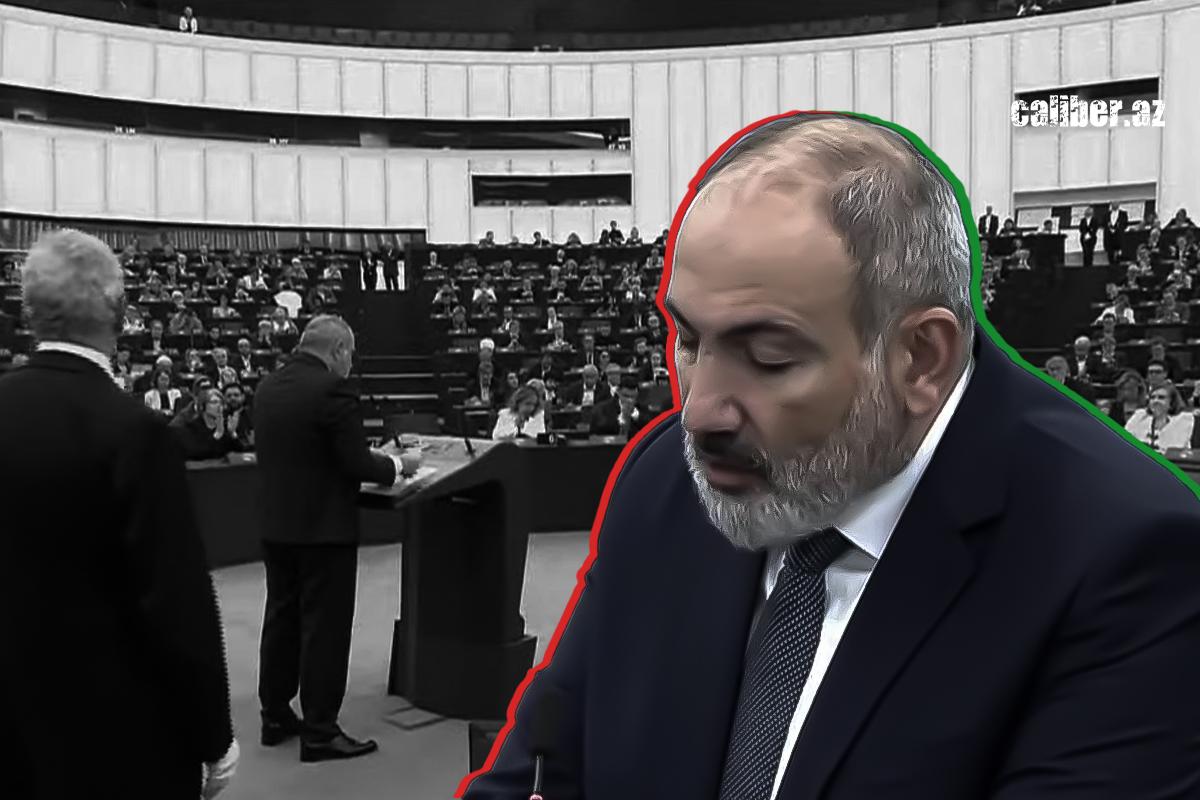Armenia to face hard period Games with West
Caliber.Az has had an interview with Russian political analyst, Doctor of Economics, professor at St. Petersburg State University Stanislav Tkachenko.
— The European Parliament adopted a resolution last week to support Armenia to apply for the EU membership. Why is it so loyal towards Armenia? What are the consequences of the MEPs’ adventure?
The European Parliament’s decision to call on the EU Council and the European Commission to consider the issue of starting negotiations on Armenia’s accession to the European Union is of a purely political nature and is dictated by the logic of the developing conflict with Russia. In this case, Armenia plays a lowly role as a tool in the hands of European politicians, who are trying to harm Russia’s interests in the South Caucasus, that’s all.
The Armenian current leaders, primarily Prime Minister Nikol Pashinyan, have made the “European choice” the main motive of their policy after 2020, when Armenia actually lost the conflict over Karabakh and seven other districts of Azerbaijan. Is such a decision can be considered rational? This is a debatable question.
Russia rejects all accusations of refusing to assist Armenia as accusations having no basis. Therefore, Moscow holds a neutral position towards Yerevan’s attempts to blame Russia for its foreign policy catastrophe of 2020–2023.
Yerevan is actively looking for “allies” who will help it quickly increase its military power and negotiate with Azerbaijan in a position of a self-confident country and capable of standing up for its interests instead of signing a peace treaty with Azerbaijan and beginning to restore transport and logistics ties with neighbouring countries. Russia does not understand the reason.
Russia is skeptical about Armenia's attempts to find those who will provide Yerevan with weapons, exert diplomatic pressure on Azerbaijan, and especially protect Armenia’s interests by using arms among such countries as India, Iran, France and the EU member states. This way the Russian Foreign Ministry assesses the efforts of the European Parliament to imitate the vigorous activity of opening a “path to Europe” for Armenia. I think that these efforts will not yield any practical results. Of course, these efforts will further aggravate relations between Russia and Armenia.
— What threats does this European path pose for Yerevan?
— I would mention two main dangers. Firstly, Armenia will first lose Russia's military and diplomatic, and then economic support, which will have unfavourable consequences for the development and existence of this country. For two centuries, Russia ensured the security of Armenia and its people, acting at different stages of history as an external ally or an imperial (union) centre of a state common to both sides, directly controlling this land and its population.
It is impossible even theoretically to change this reality in a short period of time without negative consequences for Armenia. All efforts to destroy the Russian military infrastructure in Armenia and the extensive system of economic ties will result in an acute crisis, the solution to which is not obvious yet.
Secondly, neighbouring countries having a difficult history of their own relations with the EU (Türkiye and Iran) will begin to view Yerevan as a semi-sovereign player whose mission is to project European influence in a strategically important region.
The EU's influence in the South Caucasus has never been strong. As a result of the current economic and defence crisis in Europe, Brussels' presence in the politics, economics and security of the South Caucasus has greatly declined. Therefore, abandoning a genuine ally who has demonstrated its reliability for centuries is a suicidal step that Yerevan is preparing to take.

I would say that the road to Europe, full of trials and turmoil, will open before Yerevan. Türkiye, a neighbour and currently unfriendly to Armenia, knows well what it is like to wait for the European Union’s decision for decades, hear empty promises of full membership by constantly making concessions in all spheres of bilateral relations between Ankara and Brussels.
— What might Moscow’s reaction be in the near future? What will Yerevan lose if it leaves the Eurasian Economic Union (EAEU)?
— We have already seen Russia’s further diplomatic reaction - negative and quick. Moscow has been trying for more than a year to understand the Armenian anti-government unrest in relation to the Collective Security Treaty Organisation (CSTO), and then directly to Russia itself.
The answer has been found. Armenia is trying to dramatically change its foreign policy course, to be protected by the EU and the US, and receive economic and military assistance from the West for its estrangement from Russia.
Of course, in this case, Yerevan’s dreams that Russia will continue complying with all obligations within the EAEU as an integration bloc which are beneficial for Yerevan are futile.
It is unknown how Russia will sever economic ties with Armenia. There have been no precedents for any country leaving the EAEU. Almost 85 per cent of the EAEU’s total GDP accounts for Russia. Of course, Russia will not want to have a common economic space with a country that openly supports unfriendly countries waging a hybrid war with it. No access to the Russian market practically means the loss of all preferences for Armenia. The export of goods to the Russian market is the most important source of income for Armenia.
It is unknown whether Armenia will remain as a sovereign country and as a historical home for millions of its citizens. Armenia will face a hard period as it will be unable to hope for Russia’s help any more.








